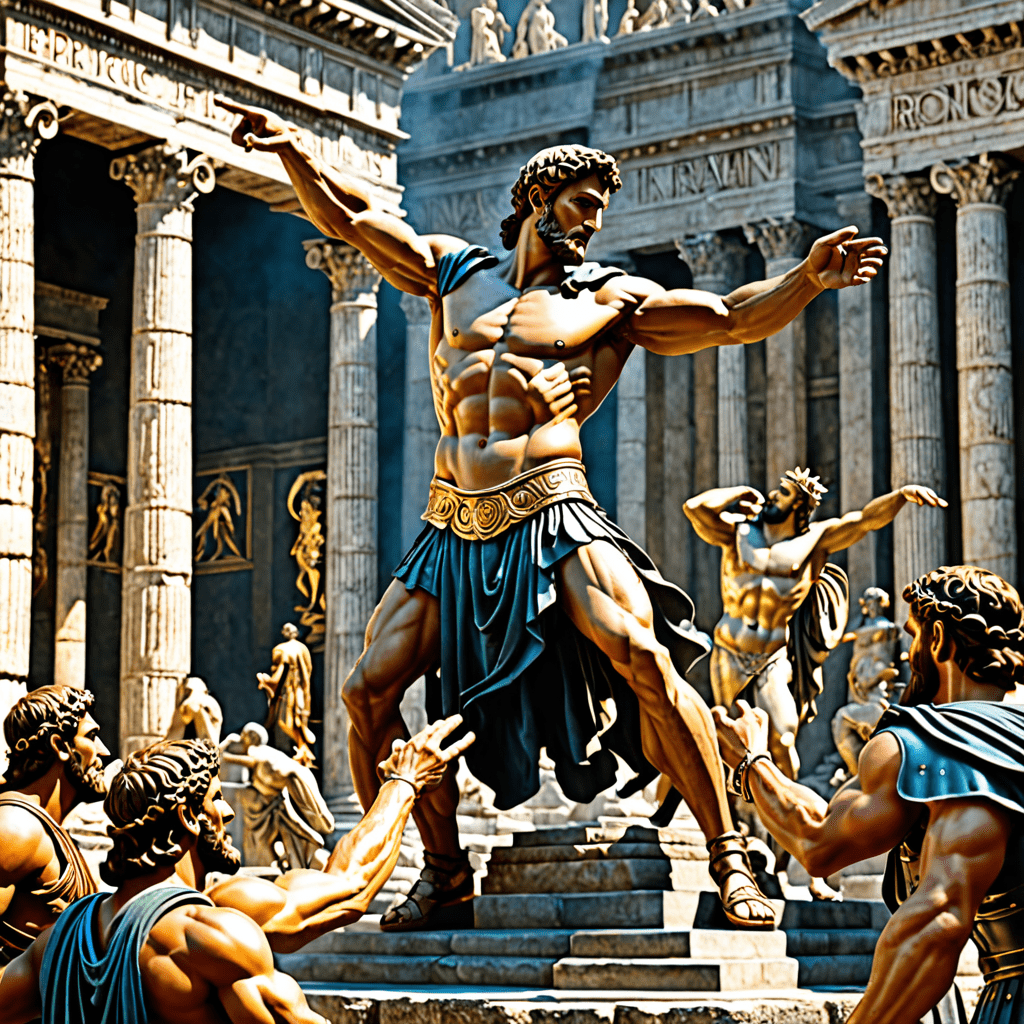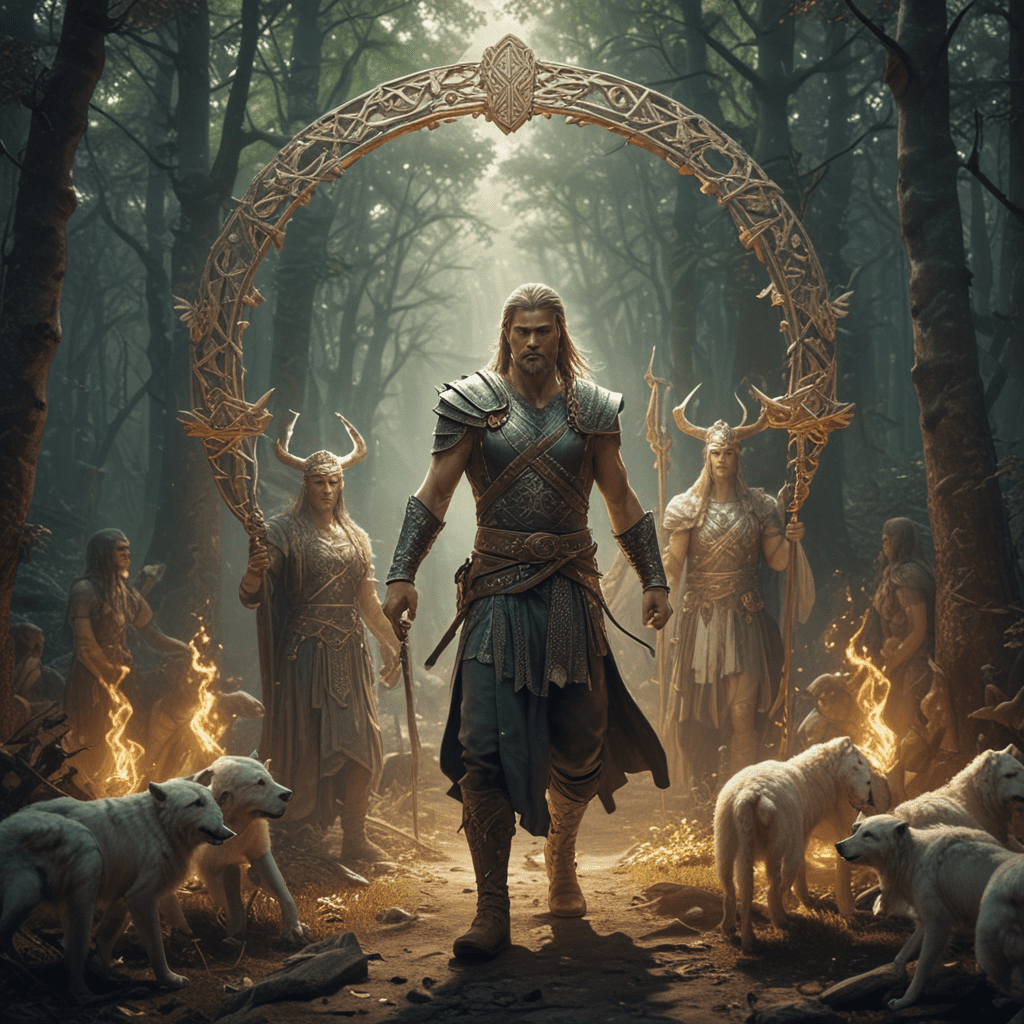The Legendary Battlefield: Epic Conflicts of Mythology
Introduction to Mythological Warfare
Mythology encompasses a rich tapestry of stories and beliefs that serve to explain the world around us, providing insight into the values and struggles of cultures throughout history. These narratives often focus on epic conflicts, where gods, heroes, and mythical creatures engage in battles that not only entertain but also impart moral lessons and cultural significance.
The conflicts depicted in mythology shape the very fabric of these tales, revealing how societies understand power, sacrifice, and the human condition. From ancient texts to modern retellings, the themes of warfare and conflict remain central to the mythological narrative.
The Role of Deities in Mythological Battles
In many mythologies, deities play a pivotal role in human conflicts, often intervening directly in battles or influencing the outcomes through their divine powers. This divine intervention reflects the beliefs of societies regarding the relationship between mortals and the divine.
Case Studies:
- Zeus and the Titans: In Greek mythology, Zeus leads the Olympian gods in a climactic battle against the Titans, symbolizing the triumph of order over chaos.
- Odin and the Frost Giants: Norse mythology depicts Odin as a warrior against the Frost Giants, representing the struggle for supremacy between different realms of existence.
Epic Heroes and Their Legendary Quests
Iconic heroes often emerge from the chaos of mythological battles, undertaking quests that solidify their legacies. These heroes embody the values and ideals of their cultures, demonstrating bravery, strength, and moral integrity in the face of overwhelming odds.
Spotlight on:
- Achilles in the Trojan War: Achilles is a central figure in Homer’s “Iliad,” known for his unmatched prowess in battle and his tragic fate.
- Beowulf’s Encounters: In the epic poem “Beowulf,” the hero confronts formidable foes such as Grendel and a dragon, symbolizing the eternal struggle between good and evil.
Mythological Creatures on the Battlefield
The presence of mythical creatures adds a layer of intrigue to warfare narratives, often symbolizing the fears and challenges faced by heroes. These creatures can serve as adversaries or allies, influencing the dynamics of battle.
Examples:
- Dragons in Eastern Mythology: In many Asian cultures, dragons are powerful symbols of strength and wisdom, often involved in conflicts that dictate the fate of kingdoms.
- Cerberus in Greek Tales: As the three-headed guardian of the Underworld, Cerberus represents the barriers between life and death, often appearing in stories that involve the afterlife and the consequences of war.
Famous Mythological Battles and Their Symbolism
Key battles in mythology serve as metaphors for larger societal conflicts and human experiences. They reflect the values, fears, and aspirations of the cultures from which they originate.
Overview of Key Battles:
- The Trojan War: A ten-year siege that symbolizes the futility of war and the consequences of pride.
- Ragnarok: The Norse apocalypse represents the cyclical nature of destruction and rebirth in the universe.
- The Mahabharata: This epic battle highlights themes of duty, righteousness, and the moral complexities of warfare.
Each of these battles carries deep cultural significance, embodying the struggles of their people and the moral lessons derived from conflict.
The Influence of Geography on Mythological Conflicts
The landscapes and locations within mythological stories often shape the nature of the conflicts. Sacred mountains, rivers, and realms serve as backdrops that influence the actions and motivations of the characters involved.
For instance, great mountains may represent challenges to be overcome, while valleys might symbolize peace or fertile ground for conflict. The geographical context adds depth to the narratives, illustrating how environment intertwines with myth.
Cultural Reflections: Warfare in Mythology Versus Reality
When comparing mythological wars with historical conflicts, one can glean insights into societal values and beliefs. Mythology often exaggerates or idealizes battles, reflecting the aspirations of cultures rather than their realities.
Through these stories, societies explore concepts of heroism, honor, and the tragic consequences of war, serving as cautionary tales or moral guidelines for future generations.
The Legacy of Mythological Warfare in Modern Culture
The echoes of ancient conflicts continue to resonate in contemporary literature, film, and art. Modern adaptations of mythological battles inspire new generations, showcasing timeless themes and moral dilemmas.
Examples of Adaptations:
- Films such as “Troy” and “300” vividly portray epic mythological battles, bringing ancient stories to life on the big screen.
- Video games like “God of War” and “Assassin’s Creed” incorporate mythological elements, allowing players to engage in legendary conflicts.
Lessons from Mythological Battles: Morality and Ethics
Mythological warfare often presents complex moral dilemmas, challenging characters to confront their values and the consequences of their actions. Themes of heroism, sacrifice, and the cost of conflict emerge as central motifs.
By examining these narratives, readers can engage with profound questions about morality and the human experience, exploring what it means to be a hero in a world fraught with conflict.
Conclusion: The Enduring Power of Mythological Warfare
The epic tales of mythological warfare continue to captivate audiences, reflecting the complexities of human nature and the timeless struggles between good and evil. These stories serve not only as entertainment but also as tools for understanding our own conflicts and values.
As we explore and reinterpret these ancient narratives, we are reminded of their significant impact on our cultural consciousness. Let us embrace these stories, drawing lessons from their profound insights into morality, heroism, and the enduring nature of conflict.



